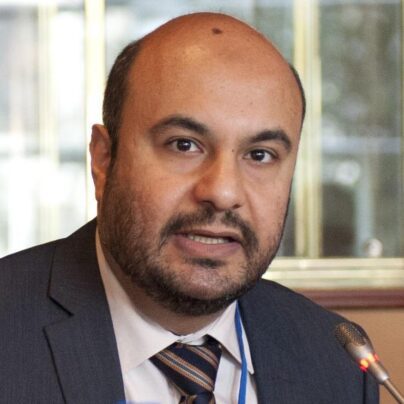“Stay at home” is the global command to curb the spread of the coronavirus Covid-19. It has a very different meaning for the people of occupied Palestine.
How, for example, can self-isolation and social distancing work in the Palestinian refugee camps that are crowded with people who are deprived of their right to return to their homes? It looks like a not-so-funny joke as far as the hundreds of thousands of people crowded into the camps are concerned.
Social distancing is a luxury that nobody has. Palestinian refugees live in “temporary” shelters that were set up ready to be disassembled when it was time for them to return to their homes and land, which for most are only a short drive away. However, decades later, and the camps have a sense of permanence as the number of refugees continues to grow.
While the medical advice is to keep the elderly away from others as they are the most vulnerable to Covid-19, it is impractical when multiple generations live under one roof, as in the Palestinian and other refugee camps. They are instructions designed for “a world not our own”, the title of a collection of stories by Palestinian writer Ghassan Kanafani.
READ: Coronavirus threatens lives of thousands of refugees in Lebanon
This not only applies to the refugee camps, but also to the Palestinians in the wider diaspora, for whom the order to go home and stay there is painful because their legitimate right to return has been ignored. The Palestinian home is the one that is “there”, not “here”, even if nothing of it remains as a result of Israel’s occupation. The true home of any Palestinian in exile remains alive in the collective memory of the time before the Nakba, Naksa and refugee status. The real key is the rusty old key that is handed down from generation to generation together with the commitment to the right of return that it symbolises.
The significance of the coronavirus crisis is not lost on Palestinians anywhere, as it is imposing a new experience on people everywhere who are in “lockdown”, having always had the freedom to move around and travel. Now, countries have closed their borders and stopped most flights and trains. This, though, is the norm for Palestinians in the Gaza Strip, where more than 2 million people have lived in isolated lockdown since 2006, turning this small area of Palestine into an open-air prison. Isolation has now become an advantage, though, helping to protect Palestinians in Gaza from the risk of cross-border infection, essential given the besieged health sectors’ inability to deal with further medical crises.
As for the Israelis, the experience of an imposed lockdown due to Covid-19 provides a rare opportunity for contemplation by the army and settlers. Perhaps it will encourage them to re-think what it means to live under siege and closure imposed by the occupation government on the Palestinian in Gaza, and behind the apartheid wall lacerating and enclosing the West Bank. And perhaps it will change their attitude and behaviour towards the Palestinians. The coronavirus has no respect for borders, walls and barbed-wire fences.
READ: Israel undermines Palestinian efforts to fight coronavirus
The views expressed in this article belong to the author and do not necessarily reflect the editorial policy of Middle East Monitor.

![A woman uses a walker at Al-Shati Refugee Camp where displaced Palestinians take shelter after their exile from Palestine during the Nakba in 1948, is seen in Gaza City, Gaza on May 15, 2017. [Ali Jadallah - Anadolu Agency]](https://i0.wp.com/www.middleeastmonitor.com/wp-content/uploads/2017/05/20170517_2_23724244_22185761-1.jpg?fit=920%2C613&ssl=1)







